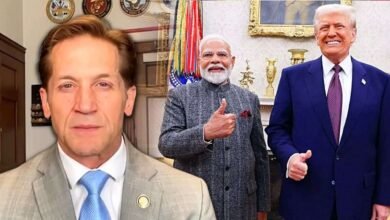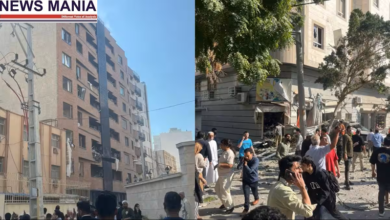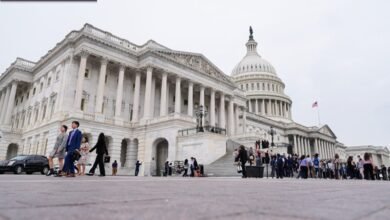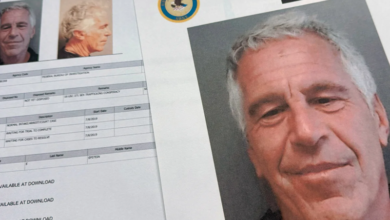South Korea’s interim president seeks to reassure friends and calm markets following Yoon’s impeachment.
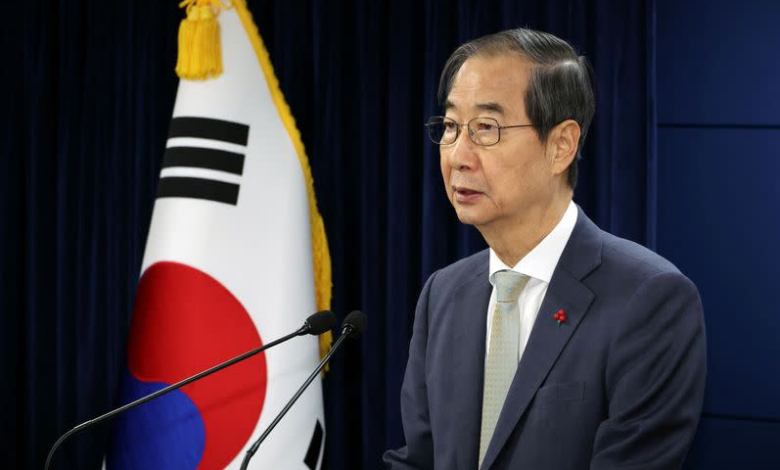
News Mania Desk / Piyal Chatterjee / 15th December 2024
South Korea’s interim president, Han Duck-soo, tried on Sunday to reassure the country’s friends and calm financial markets, a day after President Yoon Suk Yeol was impeached and suspended from office due to a martial law attempt.
The White House and Han’s office confirmed that Han spoke with US President Joe Biden over the phone. “South Korea will carry out its foreign and security policies without disruption and strive to ensure the South Korea-US alliance is maintained and developed steadfastly,” Han said in a statement issued by his office.In an additional effort to stabilize the Asian nation’s government, the main opposition party stated that it will not seek to impeach Han for his role in Yoon’s Dec. 3 martial law declaration.
“Given that the prime minister has already been confirmed as acting president and considering that excessive impeachments could lead to confusion in national governance, we have decided not to proceed with impeachment procedures,” Democratic Party leader Lee Jae-myung told reporters.
Prosecutors claimed Yoon did not appear on Sunday morning in answer to a summons for interrogation in a criminal probe into his martial law decision, and they promised to issue another order, Yonhap reported.Yoon and many top officials might face accusations of mutiny, misuse of authority, and blocking people from exercising their rights. The prosecutors’ office did not respond to phone calls seeking comment.Han, a seasoned technocrat appointed by conservative Yoon as prime minister, was elevated to interim president in line with the constitution, while Yoon’s case advances to the Constitutional Court.
Demonstrators seeking Yoon’s removal braved the cold to fill the streets outside the National Assembly building, where he was impeached. According to police and Yonhap, the crowd numbered around 200,000.
Since Han’s role is only acting president, “I hope he will exercise the minimum power to operate the country stably, rather than actively be involved in state affairs,” said Jo Sung-woo, a 39-year-old Seoul resident.
Yoon’s sudden martial rule announcement and the resulting political turmoil alarmed markets and South Korea’s diplomatic partners, who were concerned about the country’s capacity to prevent nuclear-armed North Korea. Biden assured Han that the unshakable US-South Korea relationship will stay intact, and Washington would cooperate with Seoul to further build and reinforce the alliance, as well as trilateral cooperation with neighbor Japan, according to Han’s office. The White House said in a statement that the US president “expressed his appreciation for the resiliency of democracy and the rule of law in the ROK,” which is the country’s legal name. Han summoned his cabinet and National Security Council soon after Saturday’s impeachment decision and promised to maintain military preparedness to prevent any breach of national security
He spoke on the phone with the commander of US Forces Korea, expressing worry over the likelihood of North Korea firing ballistic missiles or cyber assaults, Yonhap said, citing Han’s office. South Korea’s partners wanted to see credible and constitutional interim leadership in place as quickly as possible, said to Philip Turner, a former New Zealand ambassador to South Korea.
“They will be pleased to see Prime Minister Han take over as acting president,” he told reporters. “He is capable, experienced and well respected in foreign capitals.” Even with an interim president in place, foreign partners face months of uncertainty before a new president is chosen and a new administration is formed, Turner explained.
South Korean stocks surged for the fourth time in a row on Friday, with investors hoping that political uncertainty would alleviate following the impeachment vote in parliament, which followed a failed vote a week earlier. Lee, the Democratic Party’s leader, stated that the most serious issue is a drop in consumption driven by insufficient domestic demand and the government’s reduced budgetary role. He proposed forming a National Stability Council for Governance, which would include the administration and parliament, to debate finance, the economy, and public life. “It is necessary to promptly discuss a supplementary budget,” Lee said, adding that such a move might provide assistance to small firms as well as investments in artificial intelligence and infrastructure to combat energy shortages.
On Tuesday, Parliament, dominated by Lee’s party, passed a 673.3 trillion won ($470.6 billion) 2025 budget measure that reduced the administration’s 677.4 trillion won plan without reaching an agreement with Yoon’s People Power Party or the government. Parliament is not allowed to increase government expenditures by law, and the Democratic Party stated that a supplementary budget may be required to address spending for people’s livelihoods. The party stated that the majority of the cuts were made to government reserve money, interest charges, and cash allotted to the presidential office, prosecutors, and auditors for secret activities. The government accused parliament of delaying small company initiatives due to the cuts. One of Yoon’s grounds for declaring martial law was a financial impasse.



